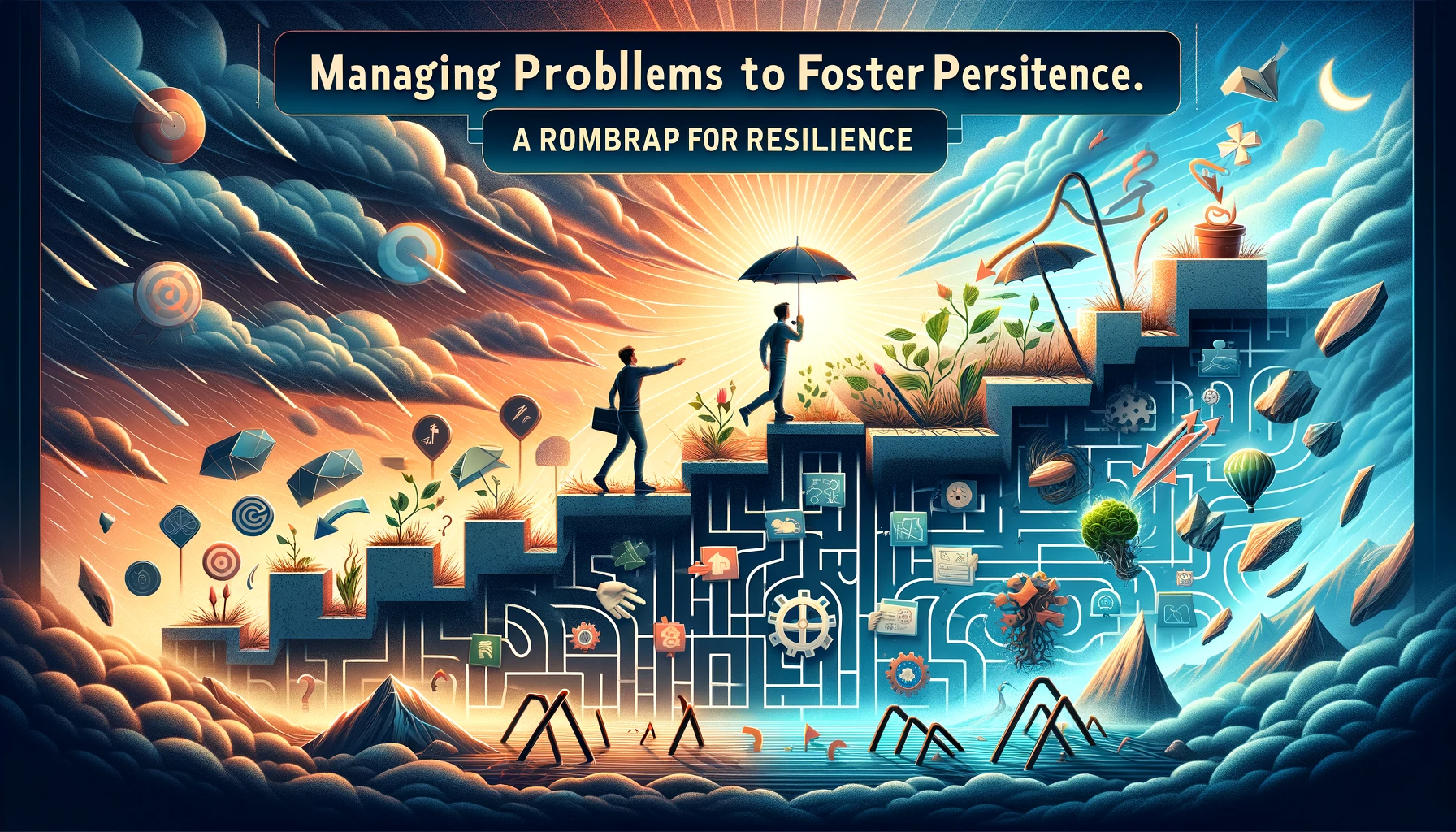Problem-solving is a universal life skill, one that is even more crucial in today’s rapidly changing world. Effective problem management not only helps us navigate through challenging situations but also cultivates persistence, an essential trait for personal and professional success (Dweck, 2006).
Problems often present themselves as roadblocks, but if managed effectively, they can turn into opportunities for growth and learning. The first step in problem management is to acknowledge the problem. Denial or avoidance often exacerbates issues, while acceptance is the starting point for resolution (Seligman, 1991).
Next, clearly defining the problem is critical. This involves understanding the root causes and the effects of the problem. Brainstorming possible solutions and evaluating their potential outcomes can then be employed (Gause & Weinberg, 1989).
An important strategy for managing problems is developing emotional resilience. Emotional resilience helps us remain calm under pressure and avoid being overwhelmed by the problem. Techniques such as mindfulness, meditation, and cognitive-behavioral approaches can support emotional resilience and provide clarity in problem-solving (Southwick & Charney, 2018).
Effective problem management also involves seeking help when needed. This could be in the form of consulting mentors, coaches, or counselors, or simply reaching out to trusted friends or colleagues. External perspectives can provide valuable insights and potential solutions that may not have been considered (Grant, 2014).
Additionally, reflecting on past experiences, both successes and failures, can offer valuable lessons for problem management. Understanding what worked before, what didn’t, and why, can inform current problem-solving strategies (Schön, 1983).
Finally, persistence is crucial in managing problems. Problems often require time and repeated attempts to resolve. Adopting a growth mindset, which perceives challenges as opportunities for growth rather than insurmountable obstacles, can foster persistence and resilience (Dweck, 2006).
In conclusion, effectively managing problems not only helps resolve the immediate issue but also contributes to building persistence. By embracing challenges as opportunities for growth and adopting resilient strategies, we can navigate any hurdle and emerge stronger.
References:
- Dweck, C. S. (2006). Mindset: The new psychology of success. New York: Random House.
- Seligman, M. E. (1991). Learned optimism. New York: Knopf.
- Gause, D. C., & Weinberg, G. M. (1989). Exploring requirements: quality before design. New York: Dorset House.
- Southwick, S. M., & Charney, D. S. (2018). Resilience: The science of mastering life’s greatest challenges. Cambridge: Cambridge University Press.
- Grant, A. M. (2014). Give and take: Why helping others drives our success. New York: Penguin Books.
- Schön, D. A. (1983). The reflective practitioner: How professionals think in action. New York: Basic Books.


